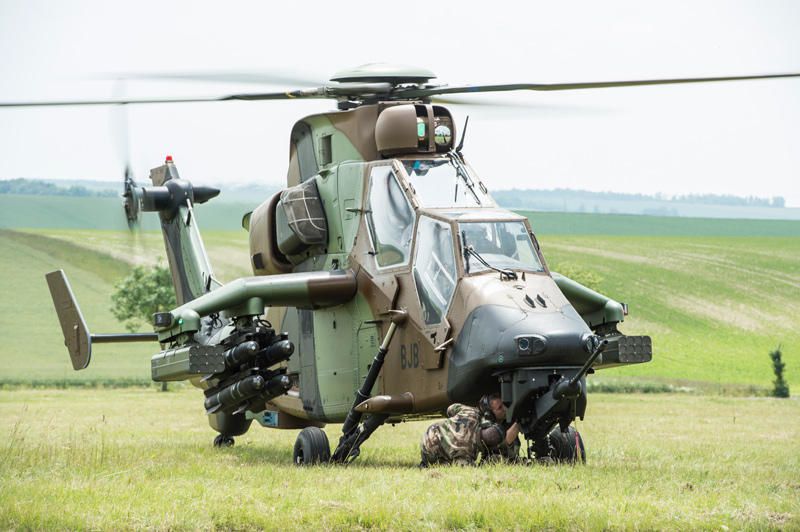09 June 2014 by Oscar Nkala - defenceWeb
The Kenyan government has unveiled plans to spend US$1 billion acquiring 10 new military helicopters, the refurbishment of three grounded Russian-made Mi-17 helicopters and the installation of closed circuit (CCTV) surveillance cameras in 10 cities in terms of a strategic five-year national security plan to secure the country against a series of terrorist attacks blamed on Somali Islamist militant group Al Shabaab.
The Standard reports the budget, released to the heads of national security agencies which include the army, intelligence, prisons and police services by cabinet secretary for the Interior Ministry Joseph Lenku in Nairobi last week, also includes the leasing of at least five helicopters to improve the operations the police force aerial wing.
The 2014/2015 budget will also cover the hiring of undisclosed number of motor vehicles and the acquisition of new motorcycles for the police services in addition to the 1 200 vehicles leased for the force last year. The budget will also cover additional vehicles for high-ranking police officers including regional superintendents and assistant commissioners.
According to the budget breakdown, the government will spend $205.6 million on the acquisition of 10 new military helicopters, $12.6 million on the renovation of three grounded Mi-17 helicopters, $11.4m on leasing helicopters to enhance aerial police patrols and a further $171.3 million on the metropolitan CCTV surveillance system.
The Integrated Public Safety Communication and Surveillance System will cover the municipalities of Nairobi, Mombasa, Nakuru, Kisumu, Garissa, Eldoret, Thika, Kisii, Nyeri and Kakamega. The controversy-shrouded tender for its implementation was recently won by local company Safari.com.
"This is part of the modernisation of our security systems in that we are able to use technology to respond to emerging crime trends. Criminals are becoming more sophisticated and we think this is the solution to tame them," Lenku said.
The first phase of the project involves mapping of the Mombasa and Nairobi line which will then be fitted with 1 800 communication and surveillance cameras monitored from a command and control centre in Nairobi.
The system will use infrared cameras capable of capturing images in dim light, Box cameras and Dome cameras capable of covering a 360 degree observation angle. The CCTV system is also capable of identifying and cross-checking faces against local police and Interpol databases of known criminals and terrorists.
The command and control centre will initially be connected to 195 police stations in the Nairobi and Mombasa municipalities while 7 600 officers will have walkie-talkies connected to the system.
The connection will enable officers to use a distress button fitted to the walkie-talkie to send video imagery of the situation around them via high speed internet link. Addressing the nation during the independence celebrations on Sunday, President Uhuru Kenyatta said the country has to spend more to achieve national security.
"Terrorists, thieves and poachers threaten our lives, our property and our national heritage. Our first line of defence is our men and women in the disciplined services and my government will stand with them. We have introduced CCTV cameras in major cities and towns, as well as broadband connectivity at border points.
"We have already provided at least 1 200 vehicles for the police, which will soon be equipped with CCTV cameras. Nearly 8 000 men and women have already joined our armed services to strengthen them for the challenges to come. This year, we have set aside Sh2.9 billion for the recruitment of 10 000 more police officers," Kenyatta said.



































/image%2F0547456%2F20140513%2Fob_6b62f2_lru-photo-rbnd.jpg)
/image%2F0547456%2F20140513%2Fob_5e7082_royal-blackhawk-2014-photo-rbnd-pic-1.jpg)
/image%2F0547456%2F20140513%2Fob_b7c7fd_royal-blackhawk-2014-photo-rbnd-pic-2.jpg)
/image%2F0547456%2F20140513%2Fob_32da14_royal-blackhawk-2014-photo-rbnd-pic-3.jpg)
/image%2F0547456%2F20140513%2Fob_cd87fb_royal-blackhawk-2014-photo-rbnd-pic-4.jpg)
/image%2F0547456%2F20140513%2Fob_50f1d4_royal-blackhawk-2014-photo-rbnd-pic-5.jpg)
/image%2F0547456%2F20140513%2Fob_e0826c_royal-blackhawk-2014-photo-rbnd-pic-6.jpg)
/image%2F0547456%2F20140513%2Fob_a13d56_royal-blackhawk-2014-photo-rbnd-pic-7.jpg)
/image%2F0547456%2F20140513%2Fob_1d0f24_royal-blackhawk-2014-photo-rbnd-pic-8.jpg)
/image%2F0547456%2F20140513%2Fob_4b8f2d_royal-blackhawk-2014-photo-rbnd-pic-9.jpg)
/image%2F0547456%2F20140513%2Fob_4ce133_royal-blackhawk-2014-photo-rbnd-pic-10.jpg)
/image%2F0547456%2F20140513%2Fob_9bd8bd_royal-blackhawk-2014-photo-rbnd-pic-11.jpg)


